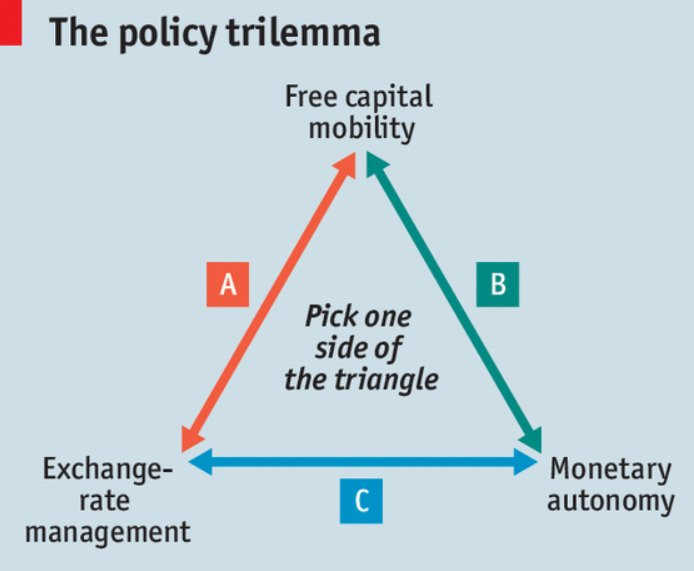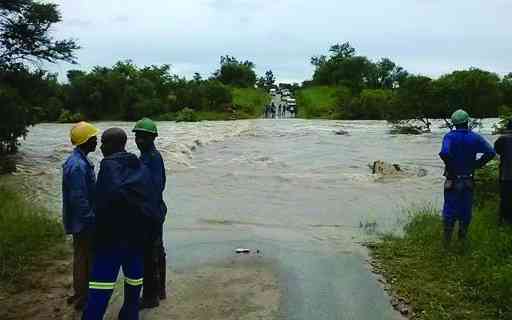
THE National Renewable Energy Policy (NREP) serves as a cornerstone in addressing the multifaceted challenges posed by the energy trilemma, encompassing energy security, environmental sustainability, and energy equity.
In navigating this intricate landscape, the NREP adopts a holistic approach, recognising the interplay between these dimensions and implementing policies and initiatives to address each aspect effectively.
This paper aims to dissect the key ways in which the NREP acknowledges and tackles the energy trilemma dimensions, drawing insights from the World Energy Council's 2021 index.
Through this exploration, we aim to glean valuable insights that
can inform strategies to enhance Zimbabwe's performance against the energy trilemma and pave the way towards a more sustainable and equitable energy future The energy trilemma dimensions
The National Renewable Energy Policy (NREP) is structured to address the three dimensions of the energy trilemma: energy security, environmental sustainability, and energy equity. Within the policy framework, several key initiatives and strategies are implemented to acknowledge and tackle each dimension effectively.
Firstly, in terms of energy security, the NREP emphasises the promotion of renewable energy sources. This includes initiatives aimed at transitioning away from fossil fuels towards sustainable alternatives, such as solar, wind, and hydroelectric power.
By reducing reliance on finite resources and enhancing energy independence, these policies contribute to a more secure energy future, International Renewable Energy Agency, (2021).
- How does Zim policy deal with trilemma?
Keep Reading
Additionally, the NREP focuses on the development of resilient energy infrastructure by recognising the vulnerabilities inherent in energy systems, particularly in the face of natural disasters and geopolitical instability, the policy prioritises investments in infrastructure modernisation and diversification.
Thus, ensuring that energy supply remains reliable and uninterrupted even under adverse conditions.
Furthermore, diversification in energy sources is a key aspect of the NREP's approach to energy security.
By encouraging a mix of renewable and conventional energy sources, the policy aims to mitigate risks associated with supply disruptions and price volatility.
This diversified energy portfolio enhances resilience and flexibility in meeting energy demand.
In terms of environmental sustainability, the NREP places a strong emphasis on the implementation of clean energy technologies by incentivising the adoption of technologies such as solar panels, wind turbines, and biomass energy systems, the policy aims to reduce greenhouse gas emissions and combat climate change and this contributes to a cleaner and more sustainable energy sector.
Moreover, the NREP integrates environmental impact assessments into the decision-making process for energy projects.
These assessments evaluate the potential environmental consequences of energy activities and inform strategies to minimise ecological harm.
By considering environmental factors upfront, the policy ensures that energy development is conducted in a responsible and sustainable manner.
Energy efficiency measures are also a focal point of the NREP's approach to environmental sustainability.
By promoting energy-efficient technologies and practices, such as energy audits, building codes, and efficiency standards, the policy seeks to optimise energy use across sectors.
This not only reduces resource consumption but also minimises environmental impact.
In terms of energy equity, the NREP prioritises inclusive energy policies that ensure access to affordable and reliable energy for all segments of society.
This includes initiatives to expand energy access in rural areas as stipulated in the Rural Electrification Fund Act [Chapter 13:20] of (2002) to provide subsidies for low-income households, and address energy poverty through targeted interventions and by promoting social equity in energy access, the policy aims to reduce disparities and improve quality of life.
Furthermore, the NREP supports the development of community-based renewable energy projects.
These initiatives empower local communities to participate in energy decision- making, enhance energy self-sufficiency, and foster social cohesion.
Hence by decentralising energy production and distribution, these projects contribute to a more equitable and resilient energy system.
Additionally, the NREP offers subsidies and financial incentives for renewable energy adoption and energy-efficient technologies.
These incentives aim to reduce the upfront costs of clean energy investments and make sustainable energy solutions more accessible to all socioeconomic groups.
By addressing affordability barriers, the policy promotes energy equity and ensures that benefits are distributed more evenly across society, World Bank, (2020).
Legal barriers, opportunities in Zim
In Zimbabwe, the energy sector faces a multitude of challenges and opportunities shaped by legal frameworks, infrastructure deficiencies, and regulatory complexities.
Firstly, Zimbabwe's energy landscape is marred by policy fragmentation, characterised by inconsistent and overlapping regulations.
This lack of coherence creates uncertainty among investors and stakeholders, hindering the development of a unified strategy to address energy challenges. Policy fragmentation also limits the effectiveness of renewable energy initiatives and complicates decision-making processes within the sector.
The country grapples with significant infrastructure deficiencies, particularly in rural and remote areas. Outdated and inadequate energy infrastructure impedes access to electricity, exacerbating energy disparities and hindering socio-economic development.
Addressing infrastructure gaps is imperative to extend electricity access, bolster energy security, and support economic growth across Zimbabwe.
Zimbabwe's regulatory framework for the energy sector suffers from inefficiencies and inconsistencies, deterring investment and stifling innovation as evident in the Renewable Energy Act [Chapter 13:24 of (2006).
Complex permitting procedures, bureaucratic hurdles, and regulatory ambiguity create barriers to entry for renewable energy projects thus regulatory reform is essential to streamline processes, enhance transparency, and foster a conducive environment for sustainable energy investments.
Strategies to address barriers
To overcome these challenges and capitalise on opportunities, Zimbabwe must adopt comprehensive strategies and these includes policy harmonisation whereby coordinating and harmonising energy policies across government agencies is critical to fostering a cohesive and unified approach to energy development by aligning policies with the principles of the energy trilemma can facilitate decision-making, promote investment, and drive sustainable energy transitions.
Secondly, prioritising investment in energy infrastructure is essential to expand electricity access and improve energy reliability. Targeted investments in transmission and distribution networks, particularly in underserved regions, can enhance energy security and support inclusive economic growth, Electricity Act [Chapter 13:19] of (2002). Moving on, simplifying regulatory processes and enhancing regulatory clarity are also paramount to attract investment and spur innovation in the energy sector. This can be achieved by streamlining permitting procedures, establishing clear regulatory guidelines, and strengthening regulatory oversight to create an enabling environment for renewable energy development.
Finally, building institutional capacity within government agencies and regulatory bodies is essential to effectively implement energy policies and regulations.
Conclusion
In conclusion, the National Renewable Energy Policy (NREP) plays a pivotal role in addressing the complex challenges posed by the energy trilemma — energy security, environmental sustainability, and energy equity. Through an analysis of the NREP's recognition of these dimensions, it is evident that the policy adopts a comprehensive approach, incorporating initiatives to promote renewable energy, enhance infrastructure resilience, and ensure energy access for all.
However, Zimbabwe faces significant legal barriers and challenges, including policy fragmentation, infrastructure deficiencies, and regulatory complexities. These obstacles hinder the effective implementation of sustainable energy strategies and necessitate concerted efforts to overcome.
Mafa (formerly Mutowekuziva) is a registered legal practitioner. She has a keen interest in human rights, development and governance. These weekly New Horizon articles, published in the Zimbabwe Independent, are coordinated by Lovemore Kadenge, an independent consultant, managing consultant of Zawale Consultants (Pvt) Ltd, past president of the Zimbabwe Economics Society and past president of the Chartered Governance & Accountancy Institute in Zimbabwe. — kadenge.zes@gmail.com or +263 772 382 852.






